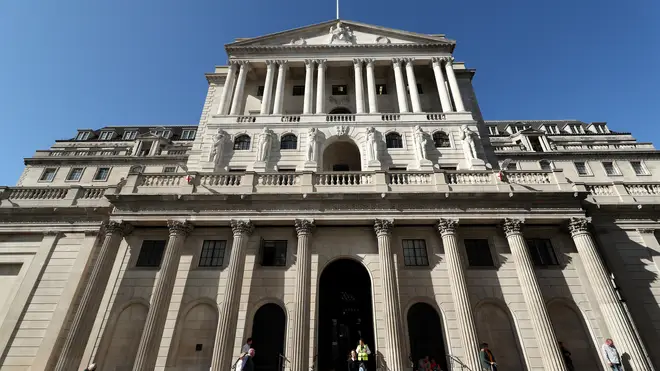
Clive Bull 1am - 4am
11 March 2020, 07:09

The Bank of England has made an emergency cut to interest rates to shore up the economy in the wake of the coronavirus outbreak.
The emergency measures will see the main interest rate to 0.25% from 0.75% in the wake of the coronavirus outbreak.
The Bank said the decision follows the spread of Covid-19, which has seen stock markets and shares plunge around the world.
The move comes ahead of the Government's budget, which will be announced by new Chancellor Rishi Sunak later today.
In a statement the bank said its role is to help UK businesses and households manage through an economic shock from coronavirus "that could prove sharp and large, but should be temporary".
It said the rate cut was part of a " comprehensive and timely package of measures to help UK businesses and households bridge across the economic disruption that is likely to be associated with Covid-19.
"These measures will help to keep firms in business and people in jobs and help prevent a temporary disruption from causing longer-lasting economic harm. "
It is the first cut since August 2016 and the first unplanned rates decision since the 2008 financial crisis.
London's FTSE 100 Index surged nearly 2% in early trading after the cut.
The rate cut decision was taken at a special meeting of the Monetary Policy Committee (MPC) which ended on Tuesday and the vote was unanimous.
The Bank's "comprehensive and timely" package of measures also includes a new term funding scheme with additional incentives for small and medium-sized enterprises (TFSME), designed to further boost lending and ensure banks pass on the rate cut.
Further action by the Bank's Financial Policy Committee, which monitors the stability of Britain's financial system, has also been taken to lower bank capital buffers and effectively bolster their lending power by up to £190 billion.
The Bank said its measures will "help to support business and consumer confidence at a difficult time, to bolster the cash flows of businesses and households, and to reduce the cost, and to improve the availability, of finance".
Earlier this month, the US Federal reserve cut its own interest rates in response to the coronavirus fears, and Andrew Bailey, the incoming governor of the Bank of England, was already under pressure to follow suit with a cut.